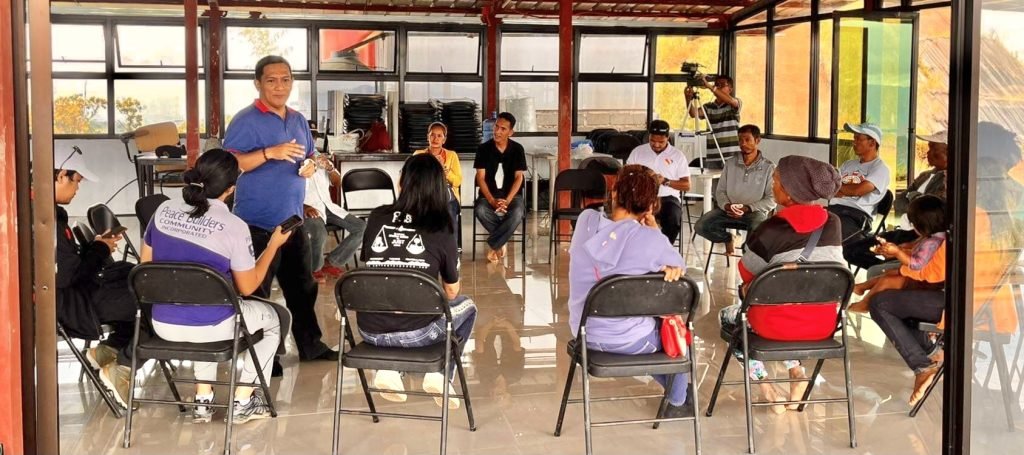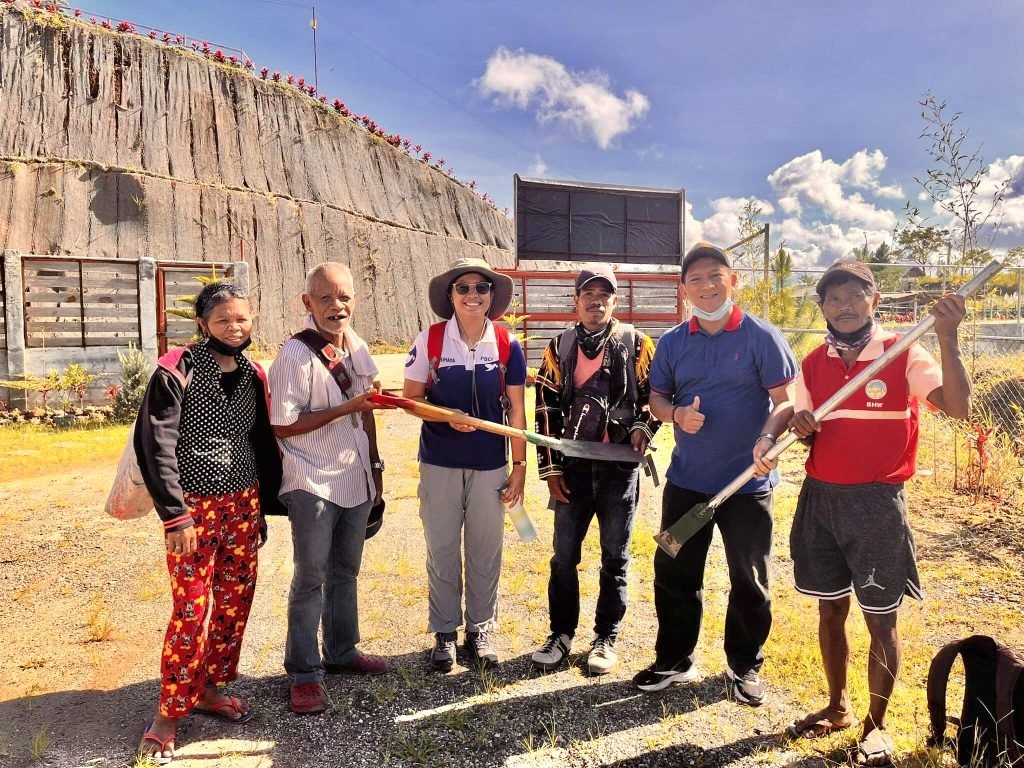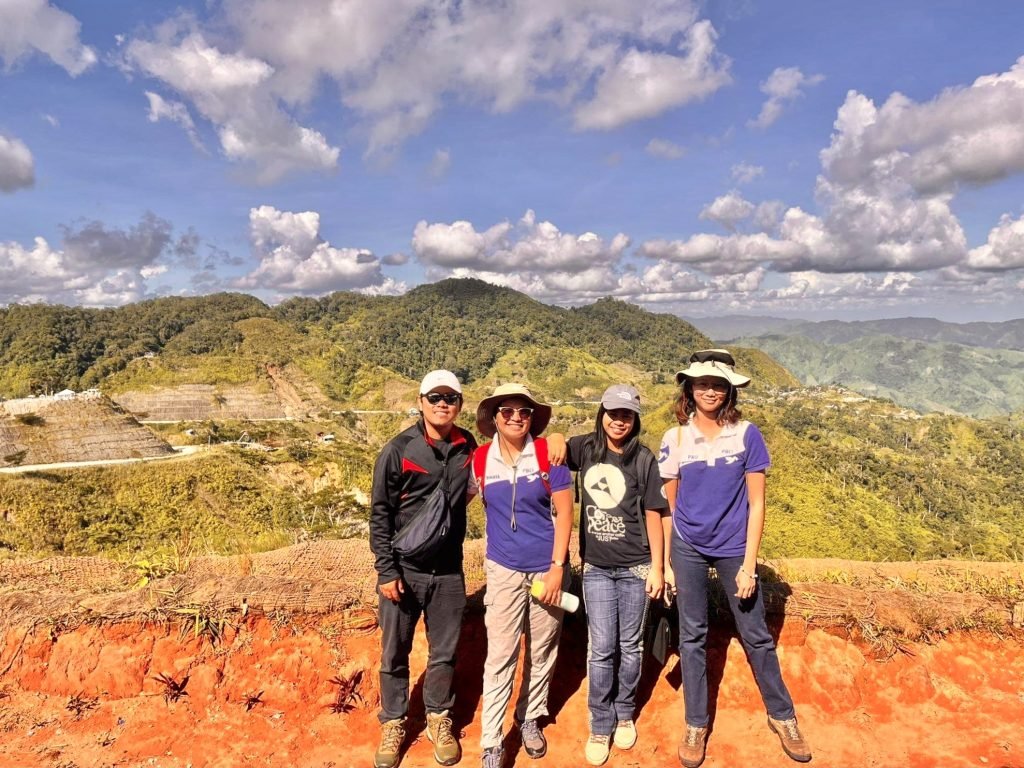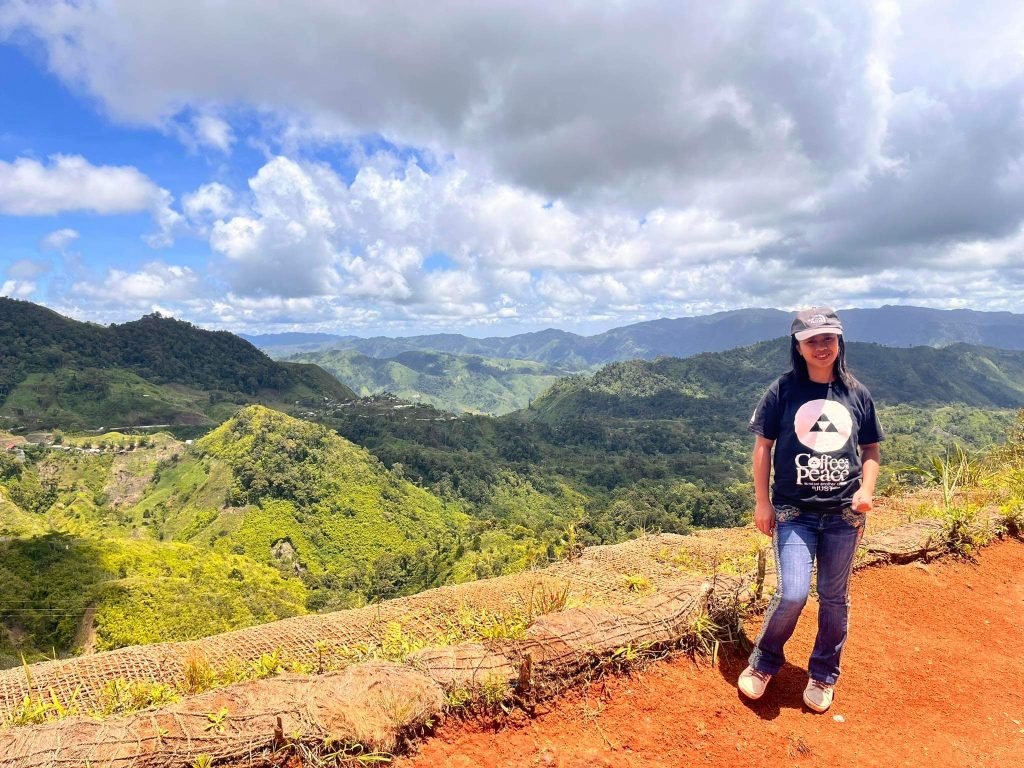CFP-PBCI INCLUDEV TEAM EXPLORES RELATIONSHIP WITH A MATIGSALOG INDIGENOUS COMMUNITY
Through the invitation of their leaders, the joint Inclusive Development Team of Coffee for Peace and PeaceBuilders Community Inc. (CFP-PBCI IncluDev Team) went to the Matigsalug Ancestral Domain to listen. Listening for us is the first act of love. We listen first to the Matigsalug Indigenous People and their traditional leaders’ worldview, value system, and behavior patterns. As a team of inclusive development workers and social entrepreneurial mentors, we are listening through the “headphones” of our understanding of Peace and Reconciliation (PAR), of Indigenous Knowledge System and Practices (IKSP), of the Indigenous Peoples’ Rights Act (IPRA), and of the United Nations Declaration on the Rights of Indigenous Peoples (UNDRIP). We hope to help amplify the voices of the Matigsalug people as they continue to allow us to journey with them towards the full enjoyment of their Right to Self-Determination and their right to protect, reclaim, and regenerate their Ancestral Domain.

Responding to an Invitation
Last Friday, 07 October 2022, our Inclusive Development Team, led by Sihaya Ansibod (CFP Vice President for Community Engagement), went to Kitaotao, Bukidnon to meet with various groups working with Matigsalug people. This is in response to an invitation they have received a few weeks ago from a traditional leader along with a group of development and religious workers involved in various projects to help the Matigsalug Indigenous People living in the City of Davao, the provinces of Bukidnon and North Cotabato.
Tala Alngag Bautista (Senior Vice President, Coffee for Peace), Aldren Banal (Owner of A & J Mahayahay Farm), and Paula Gancero (PBCI-CFP Admin Assistant) were sent with Sihaya to represent Coffee for Peace (CFP) and PeaceBuilders Community, Inc. (PBCI) to explore a relationship with the Matigsalug Indigenous People.
Our team is composed of Indigenous People and Settlers in Mindanao who have been immersed in justice-based peacebuilding and conflict transformation processes.
We intend to listen to all stakeholders
As a team of faith-inspired inclusive development workers and social entrepreneurial mentors, CFP-PBCI IncluDev Team will be listening through the “headphones” of our understanding of justice-based Peace and Reconciliation (PAR), of the Indigenous Peoples’ Rights Act (IPRA), of Indigenous Knowledge System and Practices (IKSP), and of the United Nations Declaration on the Rights of Indigenous Peoples (UNDRIP).
Our listening hearts and minds will first focus on the voices of the Matigsalug Indigenous People and their traditional leaders’ worldview, value system, and behavior patterns. We anticipate the various factions among this Indigenous People, and therefore we might hear differing voices within their tribe. We pray that we will listen with respect based on the two twin energizers of peace and reconciliation — love-and-truth, justice-and-mercy — to the end that we will be a funnel of genuine unity even in the midst of plurality.
We will listen to the well-amplified voices of politicians, propagators of non-indigenous religions, business companies, non-government organizations, government agencies, and other stakeholders. Most of them are well-meaning in their purposes and objectives as far as their projects in the Matigsalug Ancestral Domain is concerned. We will seek dialogue with them and will compare notes with them.

The Matigsalug are the people of the river
Matig means place of origin. Salug means river. The Matigsalug Indigenous People’s communities in Davao City are found in Marilog, Paquibato, Talaingod, and Calinan. They are also found in Kitaotao and San Fernando in Bukidnon; and in Arakan, North Cotabato.
Matigsalug people, like most Indigenous Peoples, are spiritual and are very much connected with Nature. In their Natural Spirituality, the Matigsalug worships the Creator of All whom they refer to as Manama. Their self-governance is based on Magbavaye, the commandments of Manama.
Their Indigenous clothings include the bandera, sinalapid, tangkulo, benanos, ampitpranela, balaren, sangked, tekos, buloso, bali-eg, babat, sal-ey, and tenuhol.
Originally, they practice fishing, gathering, planting, and hunting for their daily livelihood. As Matig Salug, fishing from their rich rivers was a great source of food. The Matigsalugs plant rice, root crops, and vegetables as the primary source of their livelihood. They used to gather plenty of fruits from the rich variety of endemic, fruit-bearing trees. They used to hunt wild animals, like wild pigs, chicken, monkey, deer, and lizard, among others as the source of their meat.
The Matigsalug Ancestral Domain is the basis of the Matigsalug life and culture. Because of the greed-oriented practices of the extractive corporations, with the legal and military collaboration of the government, the Matigsalug Ancestral Domain is now largely deforested, polluted, and stolen from the Indigenous owners.
Now, they are oppressed and exploited within their own lands. Many of them are displaced and neglected. Their poverty brought them in a survival state that they are forced to go to the urban areas as cheap laborers. In order to avoid discrimination, they usually hide their Indigenous identity and culture. Many of them, especially those who have been born in urbanized areas, have identified with the Settler’s culture and identity.
We hope to help amplify the voices of the Matigsalug people as they continue to allow us to journey with them towards the full enjoyment of their Right to Self-Determination and their right to protect, reclaim, and regenerate their Ancestral Domain.





Our SOP towards partnership
We follow a standard operating procedure towards partnership with other organizations or Indigenous Political Structure:
1. LETTER OF INTENT. The process starts with a letter of intention addressed to:
:: Ms. Sihaya Ansibod
:: Vice President for Community Engagement
:: Coffee for Peace, Inc.
:: sihaya@coffeeforpeace.com
2. EXPLORATORY PARTNERSHIP MEETING (EPM). This is our initial interaction with individuals and organizations who are interested in partnering with us in inclusive development initiatives. In this way, both parties can assess what they can offer in such activities or programs.
a. As early at this stage, we’ll clarify that CFP-PBCI IncluDevTeam is not a funding organization.
b. On one hand, PeaceBuilders Community, Inc. (PBCI) is an Inclusive Development Consulting Team who works with other organizations — civil society, religious, government, business — who would employ our team. Our professional fees are reasonable. Since we’re teaching social entrepreneurship, we practice entrepreneurial principles to sustain our work.
c. On the other hand, Coffee For Peace (CFP) is a social business corporation who would buy and market the coffee products that our partners have produced and processed based on our training standards. We buy and market our partners’ products at fair trade prices.
3. COMMUNITY ORIENTATION. Both organizations will share the partnership concepts, strategies, objectives, and goals to their respective stakeholders.
4. MEMORANDUM OF AGREEMENT (MOA). This would help us identify each organization’s role to harmonize each other’s organizational strengths and best practices. This would also avoid miscommunication, misunderstanding, and duplication of tasks.

